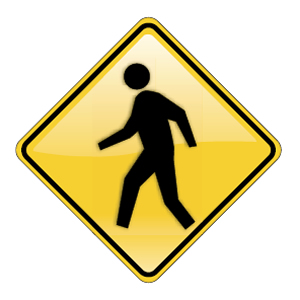 Almost 10 years ago, a small team of individuals headed west to learn about the latest findings and information concerning the rising trend in “pro se litigation.” With the leadership, vision, and support of Indiana Supreme Court Chief Justice Randall T. Shepard, Judge David Coleman (Hendricks), Judge Gregory Donat (Tippecanoe) and Staci Terry, Esq. (formerly with Indiana Legal Services) attended the National Conference on Pro Se Litigation in Scottsdale, Arizona.
Almost 10 years ago, a small team of individuals headed west to learn about the latest findings and information concerning the rising trend in “pro se litigation.” With the leadership, vision, and support of Indiana Supreme Court Chief Justice Randall T. Shepard, Judge David Coleman (Hendricks), Judge Gregory Donat (Tippecanoe) and Staci Terry, Esq. (formerly with Indiana Legal Services) attended the National Conference on Pro Se Litigation in Scottsdale, Arizona.
The Indiana Pro Se Project was started and fueled by information and energy from this conference. The Project was a statewide initiative to build a network of resources and assistance for the large population of Indiana citizens whose legal needs were not being met. The Supreme Court provided oversight of the Project, and appointed the Pro Se Advisory Committee in 2001. The Committee was made up of judges, court clerks, librarians, lawyers, and legal educators. The original members included Judge J. David Holt (Greene), Lisbeth Blosser (Allen), Hon. David Coleman (Hendricks), Hon. Natalie Conn (Grant), Judge Kathleen Coriden (Bartholomew), Judge Gregory Donat (Tippecanoe), Clerk Sharon Dugan (Hendricks), Magistrate Gregory Gillis (Lake), Ann Ginda (Indiana Legal Services), William Gooden, Esq. (Indianapolis), Professor Joanne Orr (Indiana University School of Law-Indianapolis), Master Commissioner Victoria Ransberger (Marion), David Remondini (Indiana Supreme Court), Terri Ross (Marion County Law Library), Magistrate Ann Smith (Sullivan), Judge Nicholas South (Scott), Staci Terry, Esq. (Richmond), and Anthony Zapata (Indiana Supreme Court, State Court Administration).
The Indiana Supreme Court is committed to making our justice system fair and open to all citizens. The main objective of the Pro Se Committee was to improve access to Indiana’s justice system by providing resources to pro se litigants. In its first year, the Committee launched the Self Service Legal Center website and made available relevant information, court forms, and other resources, largely in the family law area. The Committee also developed a training manual, a poster that details what the “courts can and cannot do”, and provided pro se training to Tippecanoe, Monroe and Marion counties.
The needs of the pro se litigant (now referred to as self-represented litigant or “SRL”) continue to rise and the Court has codified its commitment to pro se access. On January 1, 2008, under Administrative Rule 4(D), the Supreme Court formed the Committee on Self-Represented Litigants. As a Committee of the Court, its charge is to “conduct a continuous study of the practice, procedures, and systems for serving self-represented litigants… [provide]a long-range strategy for improving access to justice…[which may involve] the development of protocols for judges, clerks, and their staffs in addition to providing general guidance to the courts, legal service providers, and public organizations through training about meeting the needs of self-represented litigants.” When necessary, the Committee will also make recommendations to the Court about the “implementation of policies and procedures that promote access to justice in the courts for self-represented litigants.”
The composition of the committee is representative of the judiciary, the practicing bar, academia, state and local government, the Indiana State Bar Association, and public organizations. The current members are Judge Gregory Donat, Chair (Tippecanoe), Judge Steve Bowers (Elkhart), Magistrate Caryl Dill (Marion), Magistrate Gregory Gillis (Lake), Ann Ginda (Lafayette), Magistrate Faith Graham (Tippecanoe), Commissioner Danielle Gregory (Marion), Holly Harvey, Esq. (Bloomington), Diane Mimms (Marion), Terri Ross (Indiana Supreme Court), Edna Wallace (Indianapolis), Scott Wylie, Esq. (District 13 Pro Bono Plan Co-Administrator), and Maryann Williams, Esq. (Indianapolis).
Exciting changes are underway in the delivery of information and resources to self-represented litigants. In early spring of 2009, the Division of State Court Administration and the Indiana Judicial Center took SRL training tools north to Elkhart County and provided live training to court personnel on enhancing customer service when working with self-represented litigants. Over 70 judicial officers participated in training on the same topic at the spring 2009 Judicial College. Earlier this year, our Indiana trial courts also received the revised and updated duo of pro se posters (in English and Spanish) that tells what “the courts can and cannot do.” On July 6, 2009, the Self Service Legal Center revealed its new look, and now offers great new features and links in an updated, user-friendly format.
The Self Service Legal Center can be found at courts.in.gov/selfservice, and you are invited to see what’s new. The Committee is grateful for the talent and skill of the staff and IT team at the Division of State Court Administration who dedicated their time to rebuild this site. The Committee’s mission is to continue this partnership and to promote access to our courts for the self-represented individual through relevant resources and information. With the same energy and excitement for the needs of the pro se litigant exhibited by the team that headed out west 10 years ago, the Committee endeavors to advance strategies, developments, and tools for the SRL of today, and prepare for the needs of the SRL tomorrow.